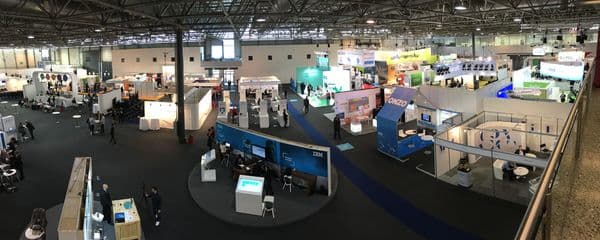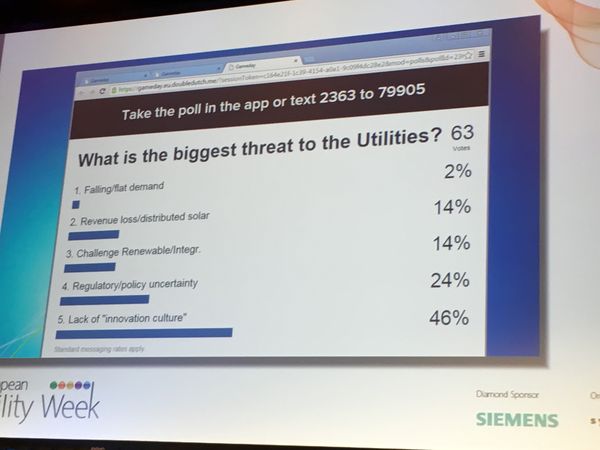Innovative Culture at the EUW 2015
"It feels like everyone is on their toes and waiting for the big change to happen." This is how one executive summarised his feelings here at the European Utilities Week (EUW) in Vienna. EUW is one of the biggest energy sector conferences in Europe. This is where the industry gets together to talk, listen and to exhibit.

What is the big change that everyone is expecting? Some say it is an outside player, such as Google, that will enter the utilities market with its customer-centric approach, data-driven business models and enormous resources. Others seem to be looking to the startups to show signs of how the market will be disrupted. Some people brush aside all small companies, because they don’t have the money to compete.
The one thing all agree on is that someone is going to disrupt this huge market and some big players will fall. "I wonder if Siemens is going to be the main sponsor of this event in three years," I heard one director thinking out loud.
Perhaps outsiders are not the biggest monsters after all? The EUW asked in a poll "What is the biggest threat to the Utilities?" Over 400 EUW attendees responded, and almost half of them said, "Lack of innovation culture" (see picture below). What does this mean in practice?
 "Lack of innovation culture". By the end of the conference over 400 people had answered this and still 46% say it is the culture.
"Lack of innovation culture". By the end of the conference over 400 people had answered this and still 46% say it is the culture.
After listening to several talks, and talking with managers, directors and executives, an image of what is required started to form. This is what I felt the right “innovation culture” would include:
- Customer-centricity. Humbly appreciating the fact that consumers are not really interested in energy and electricity. They would rather read a book or perhaps even take a nap than interact with their home automation system or energy use data. On the other hand, once you start listening to the customers, they do place a high value on green energy, convenience in daily life, and not having to worry about basic utilities.
- Failing fast and cheap. Once there is a culture of listening and co-creating with customers, one needs to be able to build prototypes and experiments to see what happens when they have a new product or a service. And the prototyping cycles should take days or perhaps few weeks, because the faster you see and learn how people are using your prototype, the faster you can succeed in finding the right solution for them. Most importantly, the prototypes should not cost too much. One must be creative and smart in prototyping.
- Mandate for change. Nothing kills innovativeness more than a non-supportive organisation. It’s not enough to have the right tools and right mindset. Top executives must support and believe in customer-centric work and failing fast & cheap. The leadership model has to encourage creativity and quick decision-making. New ideas are very, very easy to kill in a large organisation, unless there is a culture that supports and rewards new thinking, risk taking and, most importantly, disrupting existing business.
Are any of those things happening in the utilities companies? Yes, I'm happy to say. I was impressed by RWE and Essent, who have a strong vision and drive to change themselves. Listening to Inken Braunschmidt from RWE and Susanne Bach from Essent was inspiring. Their companies (and Essent is part of the larger RWE) are very actively pursuing new ways of working and innovating. Also, Susana Quintana-Plaza from E.ON made sharp and spot-on comments on the shape of innovation culture in the industry. I am also proud to say, that Helen (with whom I have worked) and their new ways of innovating new business was very progressive among the companies here.
Based on my experience in the utilities industry, and other big industries like logistics and telecommunications, I would say that these progressive companies seem to have the right pieces in the right places. They are not waiting for big disruptions to happen. They are making the disruptions themselves.
P.S. At some point I realised that most of the people I found progressive in their thinking and inspiring to listen here at EUW were women. So definitely a fourth point to the ones above: Have more women in your organisation!
- Risto SarvasService Designer, Professor, Company Culture Engineer
